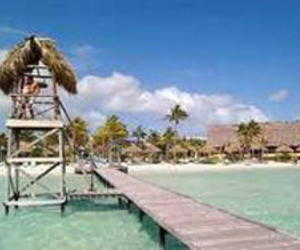Guidelines for visiting Cuba
- Submitted by: manso
- Politics and Government
- 04 / 26 / 2011

It is getting easier to visit Cuba legally. Want to go? Know the guidelines before heading to Havana.
By Jane Engle Los Angeles Times Staff Writer. April 24, 2011. If Cuba is on your bucket list of destinations, you may now find it easier to visit the Communist island legally. But not as a regular tourist. So put aside those daydreams of sipping daiquiris at a seaside resort.
More than three months after President Obama announced he would loosen restrictions that bar most Americans from legally visiting Cuba, the U.S. Treasury Department last week issued the guidelines to implement the changes.
That action freed organizations to apply for new licenses to offer Cuba trips and clarified which U.S. citizens may travel to Cuba without applying for a Treasury Department license.
That group of citizens remains small. Certain Americans, such as journalists, researchers, government employees on business, professionals attending conferences and people visiting close relatives, generally may go to Cuba. They are considered to hold a general license for such travel. Certain organizations, mostly nonprofits, can apply for a so-called specific license to organize trips there for specific purposes. Tourism is not one of those purposes
Perhaps the biggest change, which Obama announced in January, was restoring the specific license for so-called people-to-people educational exchanges, something the Bush administration suspended several years ago. These broadly worded licenses opened Cuba travel to far more Americans and will likely do so again,
When such licenses were in effect, Global Exchange, a San Francisco nonprofit, was sending nearly 2,000 people a year to Cuba for purposes as diverse as language programs and bicycle tours, said Malia Everette, director of the Reality Tours division. After the licenses were suspended, that fell to fewer than 100 in 2004, she said.
"Our plan is to take a look at the final language, and update and resubmit our people-to-people license application," Everette said last week. If the license is approved, she said, it would still take months to get new trips underway.
Other trip organizers are in the same boat.
"Because each application is processed on a case-by-case basis, I cannot estimate how long it could take for a licensing determination to be made," said Marti Adams, a Treasury Department spokeswoman.
The people-to-people licenses come with strict rules. For instance, the new guidelines require that each trip participant pursue "a full-time schedule of educational exchange activities that will result in meaningful interaction" with Cubans.
Of course, thousands of Americans each year are estimated to visit Cuba illegally, typically by traveling through a third country. Although few individuals are penalized for breaking the longtime Cuba trade embargo — the basis for the travel restrictions — violators face penalties that could include civil fines of thousands of dollars, plus incalculable hassle.
So it pays to know the ground rules.
"You want to make sure that what begins as an exciting adventure doesn't end with a letter from the Treasury Department, and you're spending a lot of money for lawyers to defend yourself," said John Kavulich, senior policy advisor to the U.S.-Cuba Trade and Economic Council Inc., a New York-based nonprofit organization that advises businesses on dealing with Cuba.
How do you know whether a group's trip is legal?
"The first question someone should ask is: 'Let me see your license from OFAC,'" said Kavulich, referring to Treasury's Office of Foreign Assets Control, which issues the licenses. "If they claim no specific license is needed, then ask for an opinion letter from a law firm that says this trip does meet the general license criteria." If they balk at those requests, don't sign up for the trip, he said.
Another red flag is beach time on the itinerary. The trip should focus on work, educational, humanitarian or religious activities.
¿Cuba, sí? Not for everyone, even with the new rules.
Source: www.latimes.com/news/custom/topofthetimes/features/la-tr-money-20110424,...
Comments